Justice Neil Gorsuch Has Landed, to the Delight of the American Right
We can appreciate the full import of Gorsuch’s position on the Supreme Court only by analyzing his written orders and decisions.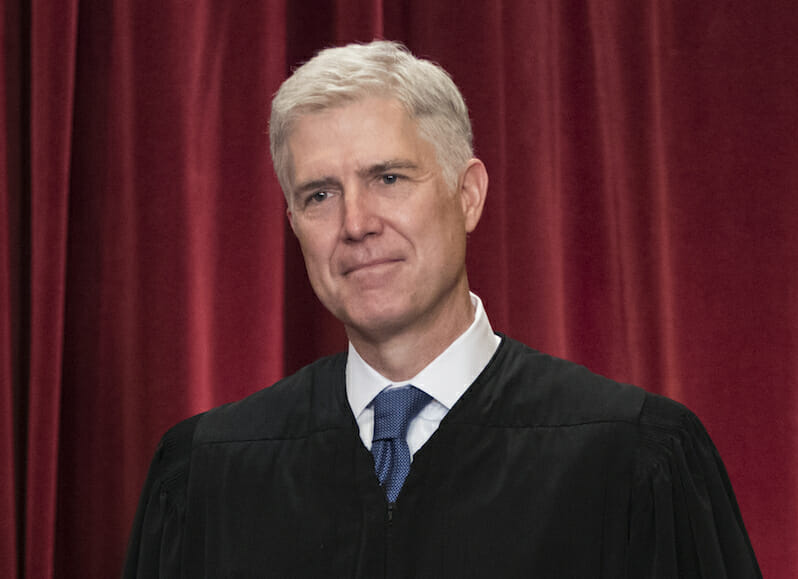 Neil Gorsuch is the 113th justice of the Supreme Court. (J. Scott Applewhite / AP)
Neil Gorsuch is the 113th justice of the Supreme Court. (J. Scott Applewhite / AP)
The biggest story coming from the Supreme Court these days doesn’t concern the cases the court decided during its recently completed October 2016 term. The biggest story—and it’s one that will resound for decades—is that Neil Gorsuch has replaced the deceased Antonin Scalia as the panel’s ninth member, giving the court, once again, a solid 5-4 Republican majority. If he stays healthy, the 49-year-old Gorsuch could serve for another 30 years or more.
During the presidential election campaign, Trump listed 21 federal and state court judges as possible replacements for Scalia. The choices were recommended by conservative think tanks such as the Heritage Foundation. In a comprehensive study led by Mercer University law professor Jeremy Kidd, Gorsuch, then a judge on the 10th Circuit Court of Appeals, was ranked second among the 21 in judicial qualities most resembling Scalia’s “originalist” approach to constitutional interpretation. Utah Supreme Court Justice Thomas Lee—the brother of Sen. Mike Lee, R-Utah—garnered the top spot.
Gorsuch is the son of the late Anne Gorsuch Burford, who headed the Environmental Protection Agency from 1981-83 under President Reagan. Trump nominated Gorsuch to the high tribunal in a nationally televised White House ceremony on Jan. 31, making him the youngest nominee since Clarence Thomas, who was appointed to the court in 1991 at age 43. Gorsuch was confirmed by the Senate in April on a vote of 54-45, after Majority Leader Mitch McConnell, R-Ky., engineered a change in the upper chamber’s parliamentary procedures, deploying the “nuclear option” to crush a threatened Democratic filibuster and allow confirmation by a simple majority vote.
Gorsuch was sworn in on April 10, a week before the court convened oral arguments on the cases remaining on the 2016 docket. To say that he hit the ground running would be a gross understatement. If his initial rulings are any guide, Gorsuch will be even more staunchly conservative than Scalia and nearly as outspoken. He’s also managed, at least thus far, to pull off the extraordinary feat of making Trump look downright deliberative for selecting him.
According to the Scotusblog website, once on the bench, Gorsuch voted in agreement with Thomas, long considered the most right-wing outlier on the court, in every case Gorsuch reviewed on the merits. He voted in line with Justice Samuel Alito in 94 percent of his cases. On the other hand, he agreed with Justice Sonia Sotomayor, regarded by many as the most liberal associate, at a 58.8 percent clip. Such disparate percentages are dramatic and rare, because the court, historically, has tended to issue more unanimous decisions than ones that have divided 5-4 along ideological lines.
Still, the raw statistics tell only part of the story. The full import of Gorsuch’s ascension to the nation’s most powerful judicial body can be appreciated only by analyzing his written orders and decisions.
In Trinity Lutheran Church v. Comer—a high-profile appeal from Missouri dealing with the “free exercise” clause of the First Amendment—Gorsuch penned a concurring opinion that signaled he is and will be a reliable supporter of the “religious liberty” doctrines the Supreme Court endorsed in its Hobby Lobby decision.
The facts of the Missouri dispute are straightforward: In 2012, the Trinity Lutheran Church of Columbia, Mo., applied for state funds to resurface the playground of a day care center it operated. Funds were being offered to resurface such areas with rubber scrap material recycled from used automobile tires. The state’s Department of Natural Resources denied the application pursuant to a provision of the Missouri Constitution (a provision many other states also have) barring churches and religious organizations from receiving direct grants of public financial assistance.
In a 7-2 majority opinion authored by Chief Justice John Roberts, which was joined by Democratic appointees Stephen Breyer and Elena Kagan, the court concluded that Missouri had violated the church’s free exercise rights. The state, according to the majority, could not deny funds to Trinity Lutheran for the secular purpose of playground resurfacing simply because the applicant was a church.
However, in a carefully worded footnote, Roberts narrowed the reach of the decision, writing: “This case involves express discrimination based on religious identity with respect to playground resurfacing. We do not address religious uses of funding or other forms of discrimination.”
In his concurrence, Gorsuch, joined by Thomas, took exception to Roberts’ footnote, expressing “worry” that “some might mistakenly read it to suggest that only “playground resurfacing’ cases, or only those with some association with children’s safety or health, or perhaps some other social good we find sufficiently worthy, are governed by the legal rules recounted in and faithfully applied by the Court’s [majority] opinion. Such a reading would be unreasonable for our cases are governed by ‘general principles, rather than ad hoc improvisations.’ And the general principles here do not permit discrimination against religious exercise—whether on the playground or anywhere else.”
By contrast, Sotomayor, writing for herself and Justice Ruth Bader Ginsburg, lambasted the majority decision, declaring that the decision “slights both our precedents and our history, and its reasoning weakens this country’s longstanding commitment to a separation of church and state beneficial to both.”
As a reliable fifth conservative, Gorsuch’s views on the First Amendment’s religion clauses will be critical as we look ahead to next term, when the court will hear another high-profile “religious liberty” appeal–Masterpiece Cakeshop, Ltd. v. Colorado Civil Rights Commission.
The Masterpiece case involves a Denver-area baker who has refused, in violation of Colorado’s Anti-Discrimination Act, to make and sell wedding cakes for same-sex marriages. As the Trinity Lutheran Church did in its litigation in Missouri, the baker contends the Colorado statute infringes on his religious freedoms. Unlike the Trinity case, however, the Masterpiece appeal will not be easily limited in scope, as other anti-gay merchants across the country, including photographers and florists, have raised similar objections to state civil rights protections. Gorsuch could prove decisive in expanding Hobby Lobby’s approval of religious discrimination against women on access to birth control to the arena of gay and lesbian discrimination.
As an early indication of his hostility toward gay rights, Gorsuch espoused a restrictive interpretation of Obergefell v. Hodges, the 2015 landmark same-sex marriage opinion, by dissenting in a case from Arkansas (Pavan v. Smith), in which the majority held that same-sex couples have the right to be listed as parents on their children’s birth certificates. Both Thomas and Alito, longtime critics of gay marriage, signed on to his dissent.
Gorsuch’s hard-right outlook was also evident in the court’s controversial per curiam (unsigned) ruling on the Trump administration’s anti-Muslim travel ban. The ruling temporarily permits part of the ban to take effect for visa applicants and refugees from six Muslim-majority countries who lack a “bona fide relationship with a person or entity in the United States.” Gorsuch, Alito and Thomas voted to reinstate the ban in its entirety. The full appeal is slated to be decided on the merits next October.
Despite his late-term arrival, Gorsuch similarly left his calling card in the fields of gun rights and campaign finance law. In the latter, he dissented from the court’s refusal to review a 9th Circuit decision that upheld California’s restrictions on concealed weapons permits. On campaign finance, he joined Thomas to dissent from the court’s decision not to take up a challenge to one of the last prohibitions that still exists in federal election laws post-Citizens United, which bars corporations from making direct contributions—as opposed to independent expenditures–from their general funds to political parties.
Next term promises to deliver even more of the same. In addition to the travel ban and the Masterpiece cases, the court will consider a potentially historic appeal from Wisconsin on the explosive subject of political gerrymandering (the practice of designing voting districts along party lines for partisan advantage). The court will also hear significant immigration cases on bail and deportation standards that are being held over from this term for re-argument—as well as cases that could define the breadth of federal environmental protections for the Trump era.
With the bitter memory of the Republican-led Senate’s obstruction of Merrick Garland lingering, and rumors circulating that Justice Anthony Kennedy is considering retirement, liberals and progressives are understandably alarmed about the future of the court. In the meantime, the American right is partying like it’s 1952 and dreaming of using the third branch of government to unravel the social safety net and turn back the clock on civil rights.
In Neil Gorsuch, the right appears to have found jurisprudential gold.
Your support is crucial…With an uncertain future and a new administration casting doubt on press freedoms, the danger is clear: The truth is at risk.
Now is the time to give. Your tax-deductible support allows us to dig deeper, delivering fearless investigative reporting and analysis that exposes what’s really happening — without compromise.
Stand with our courageous journalists. Donate today to protect a free press, uphold democracy and unearth untold stories.
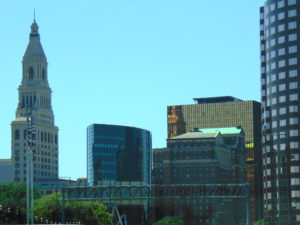
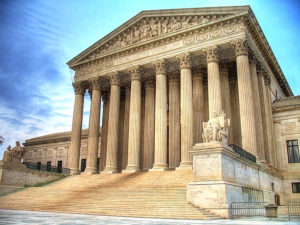
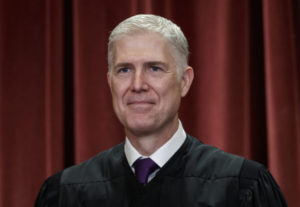
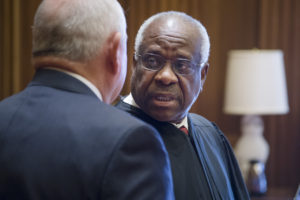
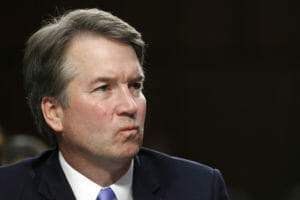
You need to be a supporter to comment.
There are currently no responses to this article.
Be the first to respond.